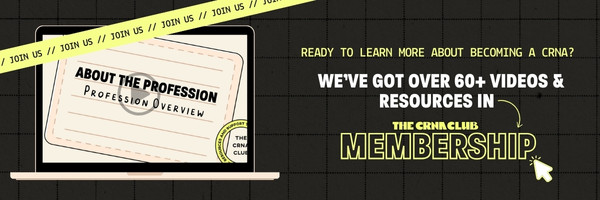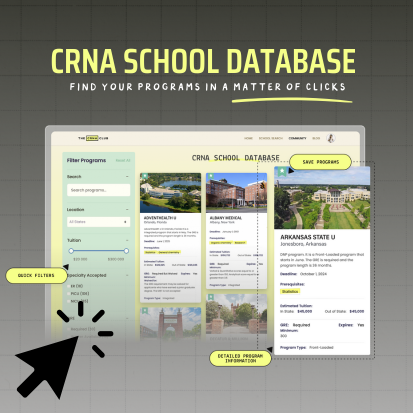✨Starting CRNA school with ADHD? You’re probably wondering, “How the HECK am I gonna survive didactic..?”. If you’re like me, you might have been diagnosed with ADHD later in life – and spent years thinking you were just a “bad student”. Well, I’m here to tell you two things:
1.) you 100% are most certainly meant to be in CRNA school, and
2.) it IS possible to have ADHD and still get through CRNA school!
If you have doubts about this, it might be time to shift your mindset. ADHD is not the biggest barrier to your success – you’ve got this!
‼️And just a disclaimer: this guide is not medical advice or a diagnostic tool. It’s meant to complement your existing ADHD treatment plan and offer support from someone who gets how tough it can be to stay focused in a demanding program like CRNA school!
Here are some things I did to shift myself into first gear to help me succeed through didactic as a student with ADHD!
Understanding your Learning Style
Take a learning style quiz 💭
- There are tons of free quizzes online to help you understand how you learn best. One of our professors had us take one the first week—and it changed everything for me. Even if you think you’ve got it figured out, CRNA school is on a whole new level. CRNA school learning ≠ undergrad learning! Knowing your learning style can help you tweak your study habits to actually work with your brain, not against it.
In-class Focus Hacks
Sit in the front row! 👨🏻💻
- Your phone = your biggest distraction. Social media, YouTube, texts, anything is more appealing than lung physiology 🥲. Sitting up front keeps you more accountable and focused. You’re literally in your professor’s line of sight. It’s not about looking like a star student, it’s about staying present!
Active Note Taking ✍️
- Again, this may work better for those who are more kinesthetic learners, but I encourage you to find out what your learning style is!
If you’re a kinesthetic learner (like me), passive listening won’t cut it. I need to write, whether it’s doodling, highlighting, or scribbling notes on the slides. It keeps my hands busy and my brain engaged. For content-heavy classes (like A&P), I switch to typing during lecture to keep up with the pace. Either way, movement = focus.
Studying Tips
Re-listening to lectures at 2x speed! ⏳
- ADHD means your brain might wander mid-conversation (or mid-lecture) without warning. Replaying lectures at double speed helps me fill in gaps without losing focus, or my sanity! 🙃
Pomodoro Timers ⏱️
- My attention span is SHORT! ⏰ Pomodoro timers break studying into bite-sized sessions (typically 25 mins of work & 5 min breaks). It keeps me structured without burning out! I use Flow on my Mac—10/10 recommend!
Move Your Body! 🏃🏻♂️
- Investing in a walking pad was a game changer during didactic. I can’t sit still for more than 30 minutes, so walking while going through Anki cards made studying way more doable. It keeps your body moving and your brain engaged, win-win! 🙂↕️ If a walking pad isn’t an option, find any way to incorporate movement into your study routine!
Find a Change of Scenery! 🪴
- Total silence? 🤫 Not for me! I need background noise and a little stimulation to stay engaged. That’s why I study in cafés 90% of the time, cold air (OR prep!), steady foot-traffic, and uncomfortable chairs (posture perks?). It works way better than my nap-prone bedroom setup!
✨ I want to emphasize that these tips are what helped me – someone with ADHD – navigate the toughest parts of didactic in CRNA school. They’re meant to supplement your existing plan, not replace it. If you feel you need additional support or accommodations, don’t hesitate to reach out to your school’s disability services.
✨ At the end of the day, half the battle is your mindset and dedication. ADHD may make the journey more challenging, but it’s not a roadblock! With a few adjustments, you can get through it, and I truly believe in you!
Ready to learn more about the CRNA profession, hot topics, and issues we face? We’ve got resources and videos for you inside The CRNA Club Membership!



